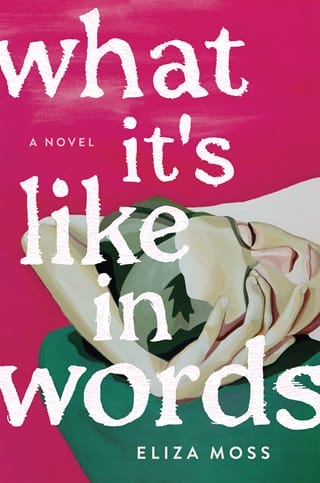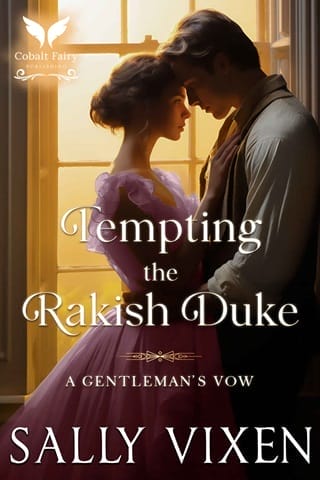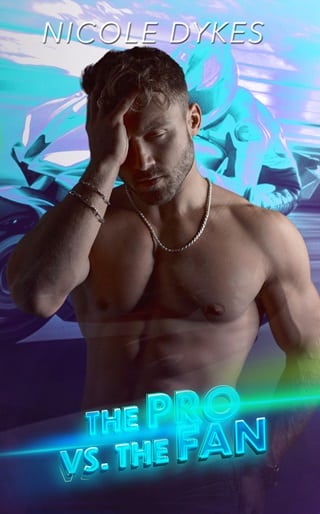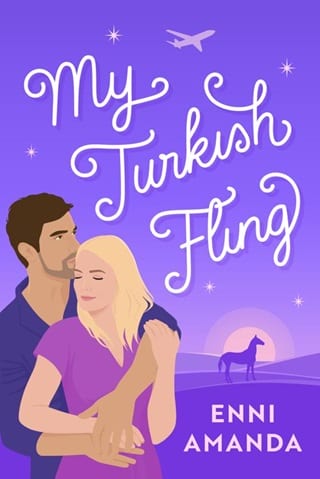Chapter 24
CHAPTER 24
Keep us close to your heart,
so if the skies turn dark,
we may live on in comets and stars.
We crouched in Sand River with the sun on our shoulders. Dad put his finger on his lips. Elephants fire a warning signal. We must back away slowly. Never run. I could smell the fry that Mum was cooking up the bank. The matriarch flapped her ears.
Dad…? Dad told me to freeze, but the elephant flicked her trunk. Dad gestured like a marine, and we crept back through the water. But then she trumpeted loudly.
Run! Dad yanked my hand. The reeds whipped our shins, and my ankle turned on a rock. We shambled up to where Mum held a plate of bacon.
You got too close, Kit.
Mum told me to go back to the tent.
But—
Now , Enola.
W E SAT ON CANVAS chairs around the fire. Everything was tinted, giving the illusion of early morning. There was a loud roar followed by another one. The lions were close tonight. A star darted through the black like a firework. Ruth and I made a wish. There was a distinctive rustling, and we all held still. Mum raised her torch as an impala splashed through the water to the other side of the bank. Dad went to take his bath in the river, and Mum told us that it was bedtime. Do you need the scoop? We shook our heads and grabbed our toothbrushes, water bottles, and torches. We brushed our teeth, then went to our tent, where we lay facing each other in the dark. Ruth whispered that Emily had kissed a boy.
What was it like?
Weird and wet.
Ruth told me that when she was older, she wanted to kiss girls, and I told her that I didn’t want to kiss anyone. Ruth said that she could hear my parents. I said that they were just arguing. Ruth turned onto her stomach and fell asleep, but I lay awake listening to the conversations of the lions reverberate like thunder across the plains.
D AD LEFT THE ENGINE on, and “Wichita Lineman” played across the savanna. We sat on the roof and watched herds of wildebeest and zebra grazing in the distance. As the sun drip-fed the horizon, my eyes adjusted. Dad drained the rest of his beer. You must always take time for a sundowner, Enola. I put the empty bottle in the cool box and handed him a new one. Your mum is always go go go, he said, punctuating each word with his fist. I wrapped my arms around myself; Mum would tell me off for not bringing a jumper. I told him that I had been given a gold star in school, and he asked if I had heard the story of when his childhood dog, Dodger, ate his homework. As he spoke, the remaining orange drained from the sky. The air turned cold, and the radio seemed too loud.
Should we go back now, Dad?
He pointed somewhere in the dark distance. Listen, hyenas!
Dinner might be ready now, Dad.
He sighed and said: Go go go.
I slid through the hatch onto the back seat, and Dad went to the front. Look, he said, poking his head out the window. That’s the Big Dipper. And that one? That’s the Plow. Some of them are dead, he said, turning on the engine.
D AD WAS DRIVING , M UM was in the front, and Ruth and I stood in the back with our bodies through the hatch. Lions had been spotted in No Man’s Land. There was a small sign to Tanzania, and Mum said that we shouldn’t go any farther, but Dad said that no one would care; we could drive to the other side of the Serengeti if we wanted.
Dad negotiated the car down a small valley, through patches of black sand that fixed to the wheels like tar until we made it to greenery on the other side of the stream. Ruth screamed. Mum told us to sit down. The roof was put back up, and the windows were closed. The car became hot and airless. We pressed our faces to the glass. A male and a female were lying beneath two acacia trees. The lion prowled toward the lioness and mounted her. Ruth pinched my arm. They growled, and the male bit the female’s neck as she thrashed her head. Thirty seconds later, he returned to his spot, and the female rolled onto her back and let her legs hang upward.
W E WERE EATING brEAKFAST when the sky cracked and opened. We gathered up as much as we could and ran underneath the canvas where we kept the kitchen supplies, toiletries, and torches. I thought about all the animals running for shelter. The warthogs and zebras and buffalo. I wondered if they all huddled in a temporary truce under the same tree. Ruth said that her bacon was wet. I tried to bite my sandwich, but the bread fell apart. Ruth grabbed my hand and yanked me into the rain. Mum told us to come back, but we held our faces up and stuck out our tongues. We laughed hysterically, our clothes wet through, our shoes, our socks, our pants; the air was water. I shouted to Mum and Dad to join us. Mum told us to stop being silly but then Dad pulled her from under the tent, and they joined us, spinning and laughing and squinting in the rain. I wondered if any animals were doing the same thing, or perhaps this was how we were different.
We had driven to see the buffalo, but, on the way back to Sand River, we became lost. It had been a long, hot day; we had seen families of warthogs and cheetahs and zebras and wildebeest; we had stopped for mango juice and peanut butter cookies on a bridge and seen elephants and crocodiles and hippos. But now there were no herds, and the land was dead. Mum fanned us with her book. We noticed, then, hundreds of brown anthills spread equidistant like graves.
Look. Ruth pointed to a carcass.
Dad slowed the car, and we stared at the remains, burned to leather by the sun. The flesh torn away in ribbons. First by lions and then by hyenas and then—Dad pointed to the branches of a leafless tree where two vultures perched, weighty and hooded. Above, more circled in the sky. Dad turned the engine off and stepped out of the car. He lit a cigarette and looked through the binoculars.
It’s like the elephant graveyard, whispered Ruth.
Kit, Mum said through the open window. How much gas is left?
Dad lowered the binoculars.
Kit?
He turned back, eyes dark.
 Fullepub
Fullepub 



